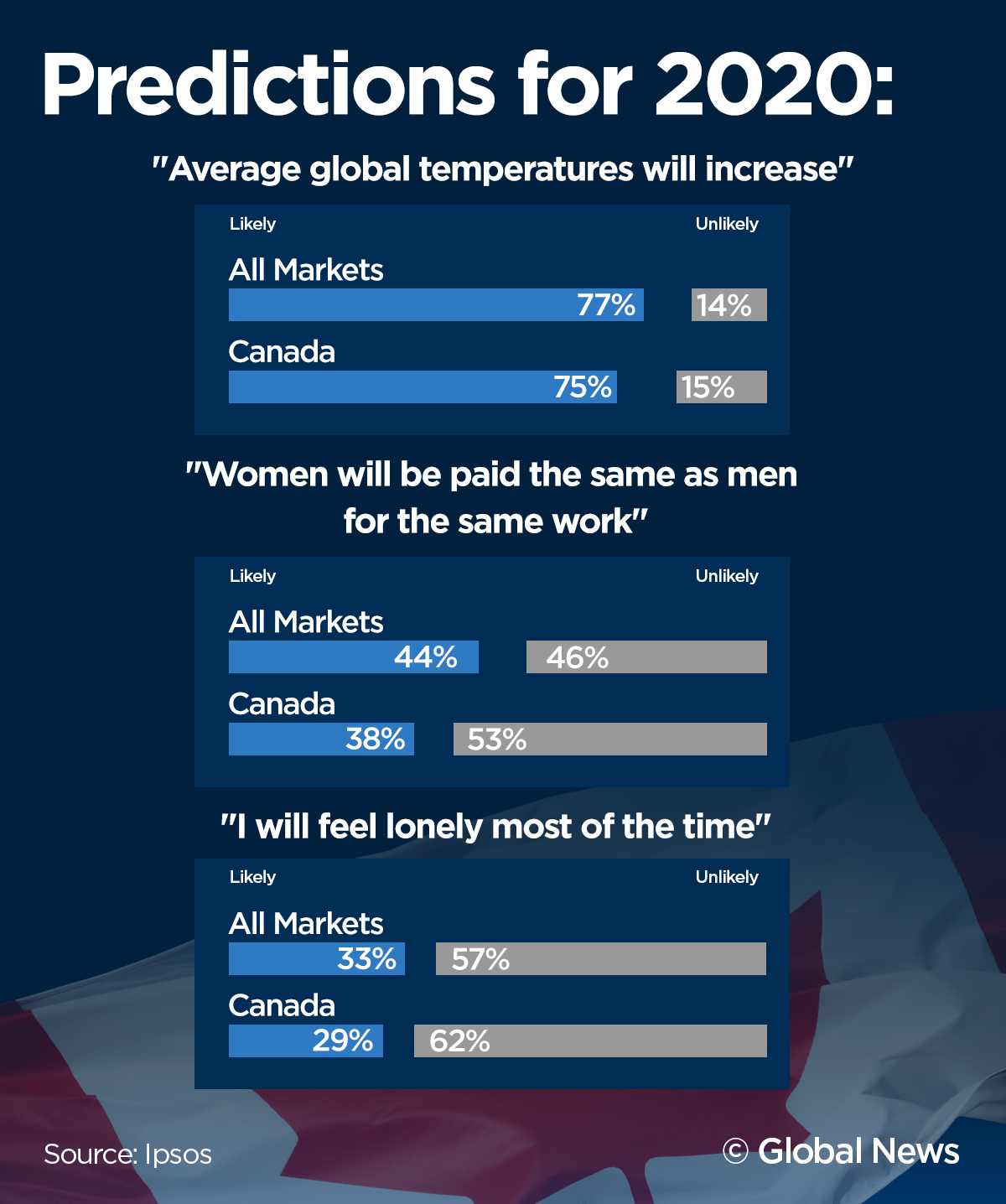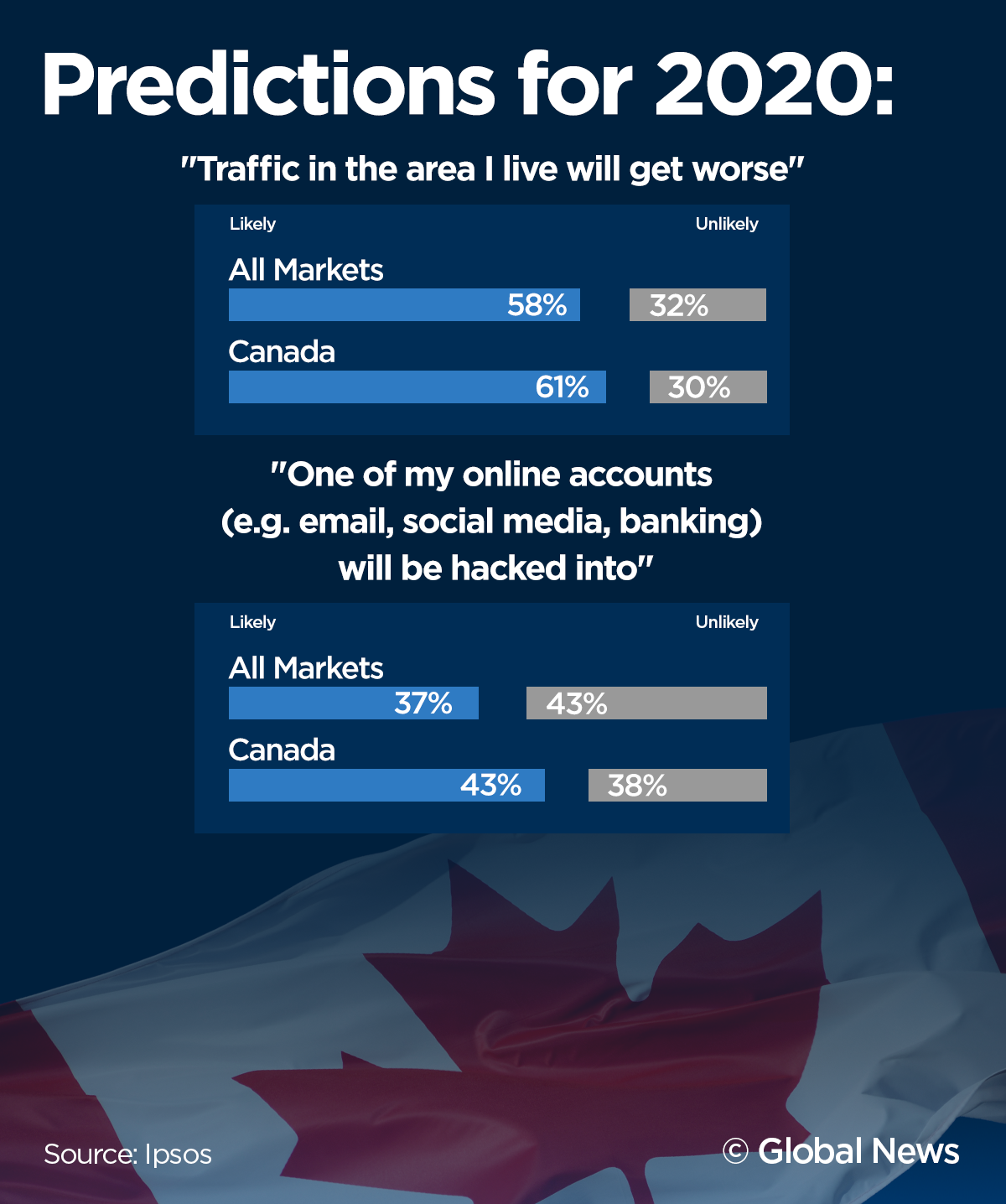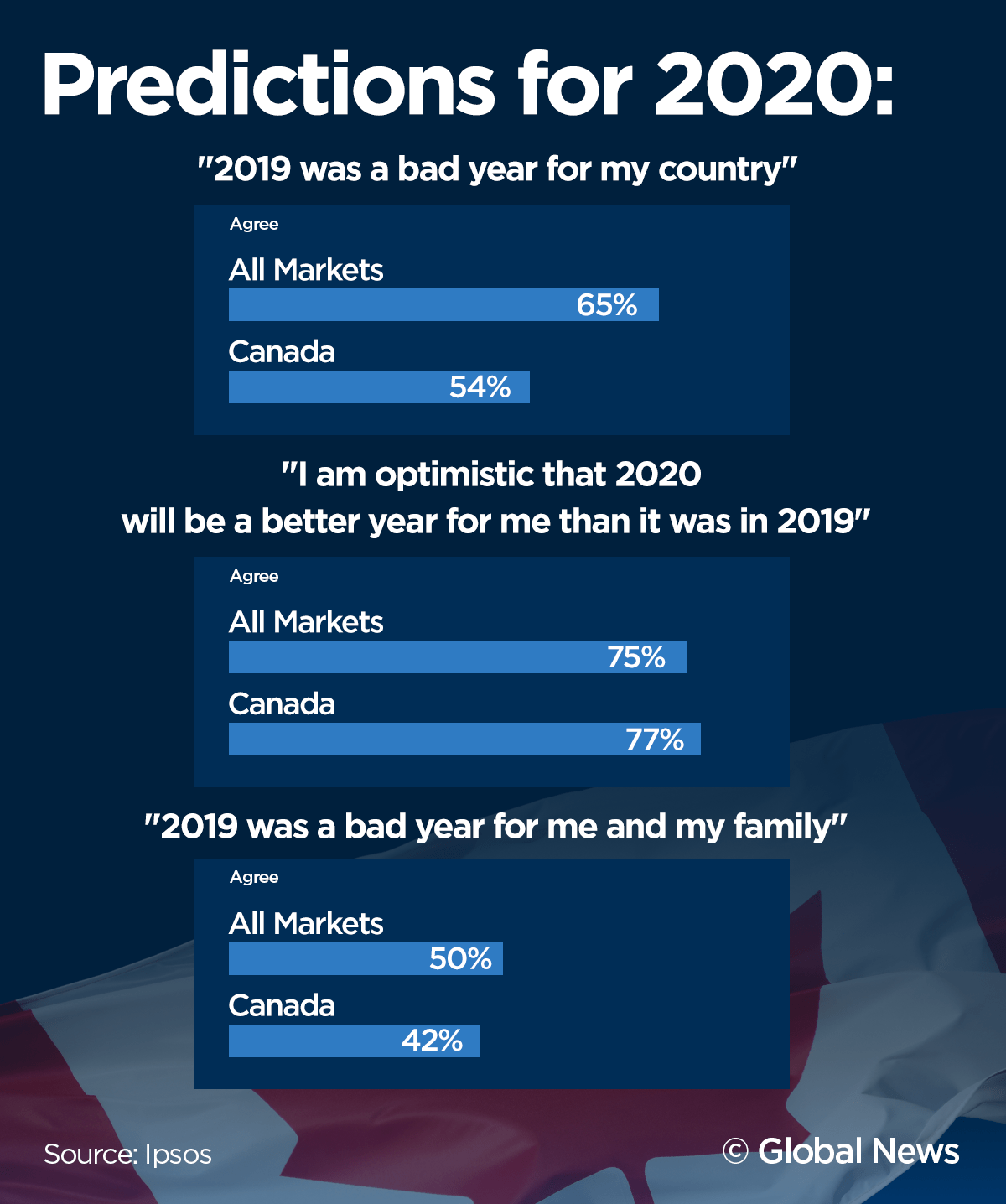According to a new poll, more than half of Canadians think 2019 was a generally bad year for Canada.

The poll, which was conducted by Ipsos, captured the predictions and outlooks of Canadians, as well as those in 32 other countries, on topics ranging from climate change to the economy.
Among the results, 75 per cent of Canadians expect an increase in global temperatures in 2020 while over six in 10 Canadians said they believe gender wage equality won’t be reached this year.
Jennifer McLeod, Ipsos vice president of public affairs, said a majority of Canadians are actually still feeling positive for this year — despite their view of 2019 as well as the negative predictions they’ve made for 2020.
“You know, while some things that Canadians are worried about have met these negative predictions … I do think that on the whole, they are feeling positive,” said McLeod.
The poll also found that about three-quarters of Canadians feel that 2020 will be better overall year than 2019, as well as about four in 10 feel that the global economy will be better.

Get weekly money news
“Though Canada isn’t quite as optimistic about this as some other countries, you know that’s still not a bad number — we’re looking for that silver lining,” she said.
Canada’s outlook on the last year was still not as negative compared to other countries around the world, the poll found.
Almost two-thirds of those polled globally thought of 2019 as a bad year for their country compared to 54 per cent of Canadians.

When it comes to their personal experience, only 42 per cent of Canadians thought last year was bad for them and their family compared to 50 per cent of those polled everywhere on average.
McLeod said that although she wasn’t surprised by the results, what stood out the most to her were the predictions on both climate change and loneliness.
“It’s turned into the issue of our generation,” McLeod said of climate change.
“We see that this is continuously an important issue for Canadians today and it has been a growing issue over the last (few) months. Environmental responsibility is important to most Canadians.”
One question on the Ipsos poll asked whether or not a person would feel lonely most of the time in 2020, a question Canadians measured 29 per cent in compared to the global average of 33 per cent.
McLeod attributes it to the prevalence of mental health issues.
On a lighter note, Ipsos also asked how likely it would be for aliens to visit Earth in 2020 — a scenario only 1 in 10 Canadians thought was likely.
“Some might see that as a good thing, some might see that as a bad thing but it’s just a minority of Canadians that feel that way,” said McLeod.
This Ipsos poll was an online survey of 22,512 interviews conducted between Nov. 22-Dec.6, 2019. The results were weighted to balance the demographics of the adult population among the countries surveyed. The precision of the Ipsos online poll with an unweighted probability sample and 100 per cent response rate would have an estimated margin of error of plus or minus 3.1 percentage points for a sample of 1,000, and an estimated margin of error of plus or minus 4.5 percentage points 19 times out 20 per country of what the results had been if the entire country’s adult population had been polled.











Comments
Want to discuss? Please read our Commenting Policy first.